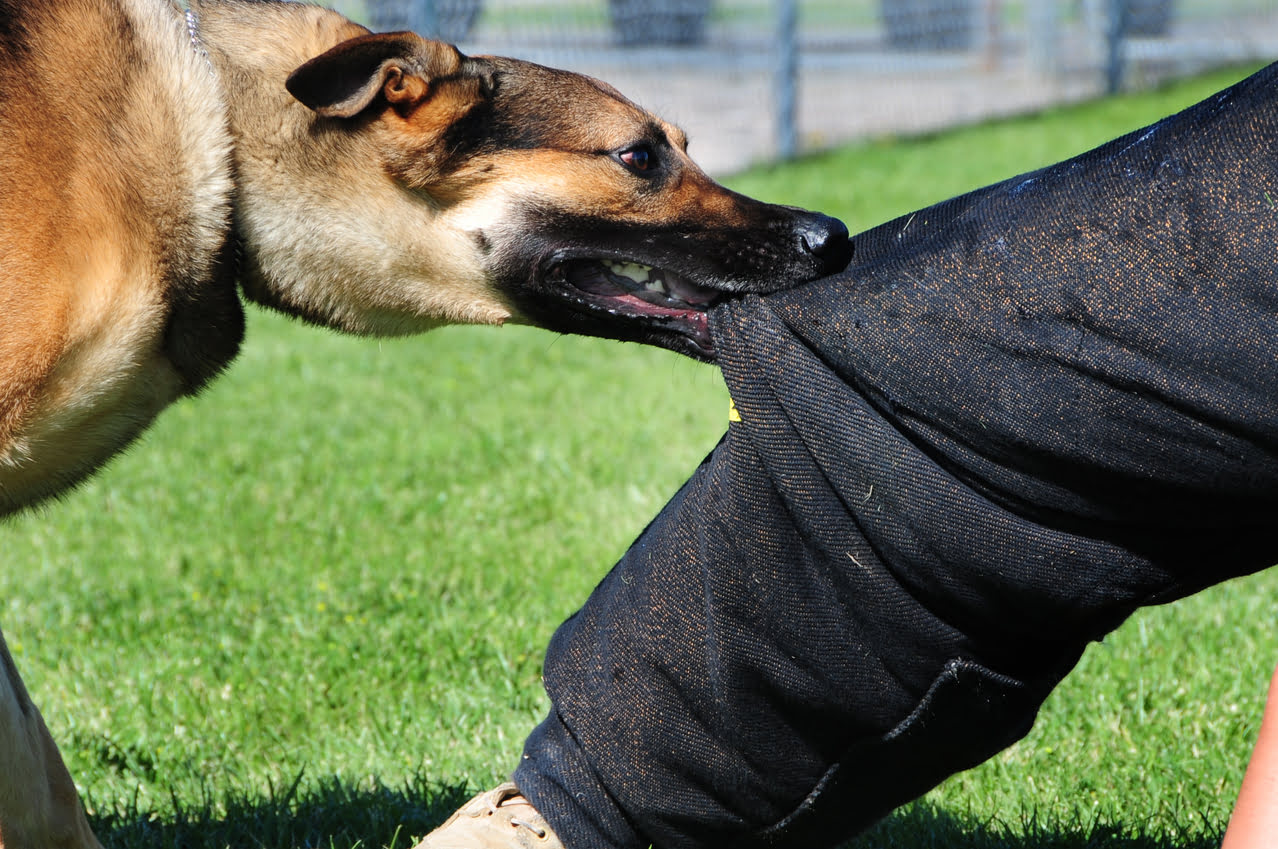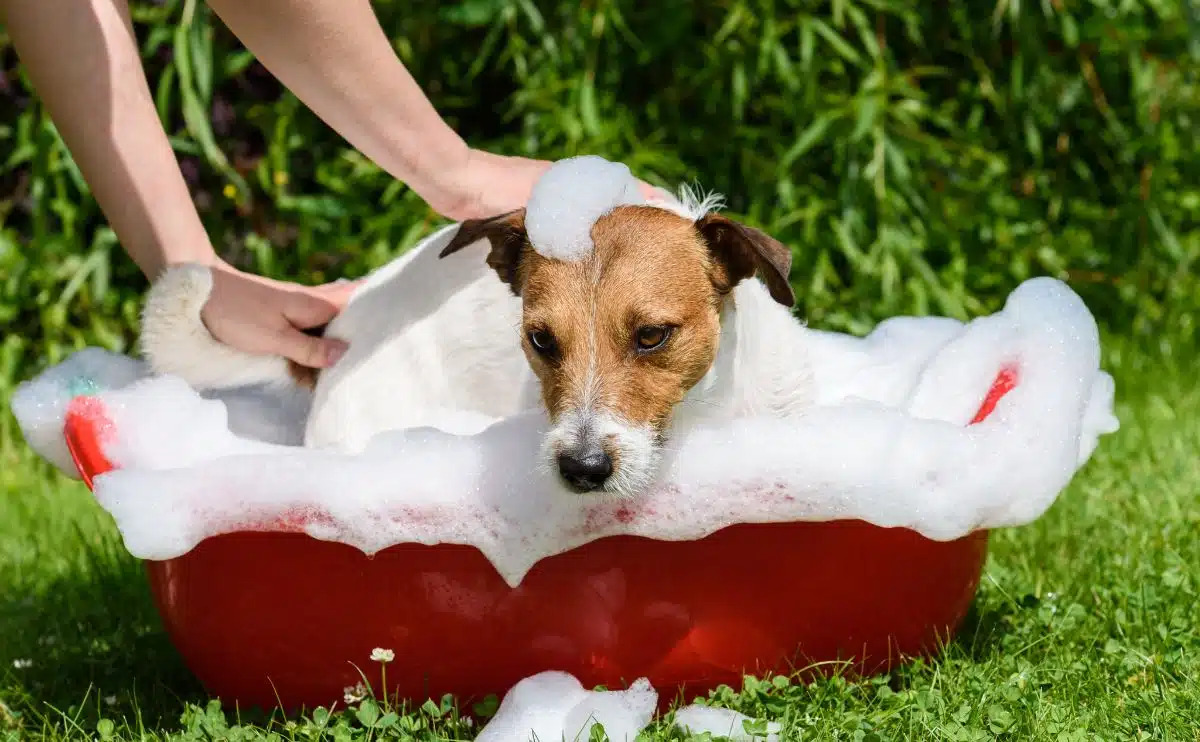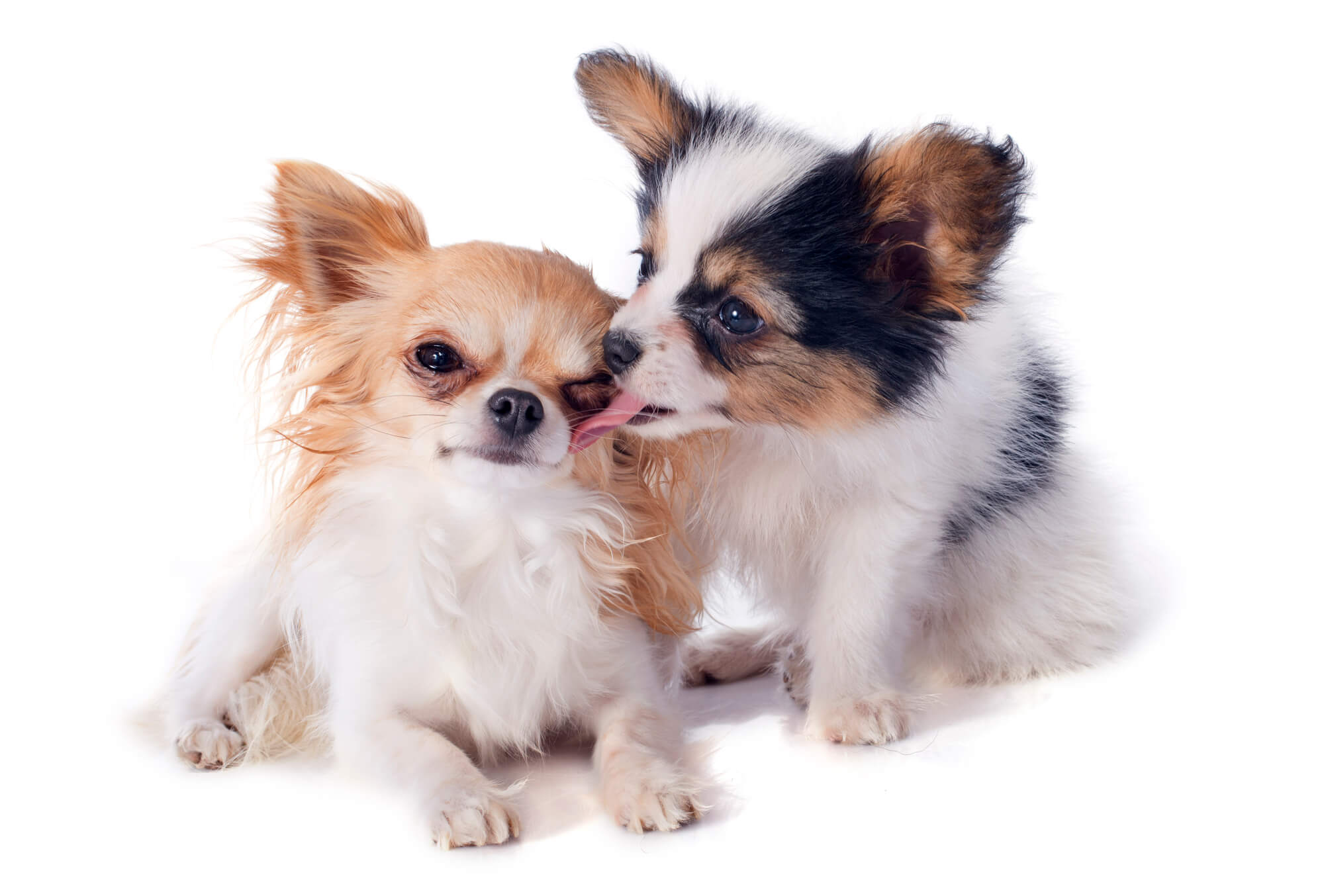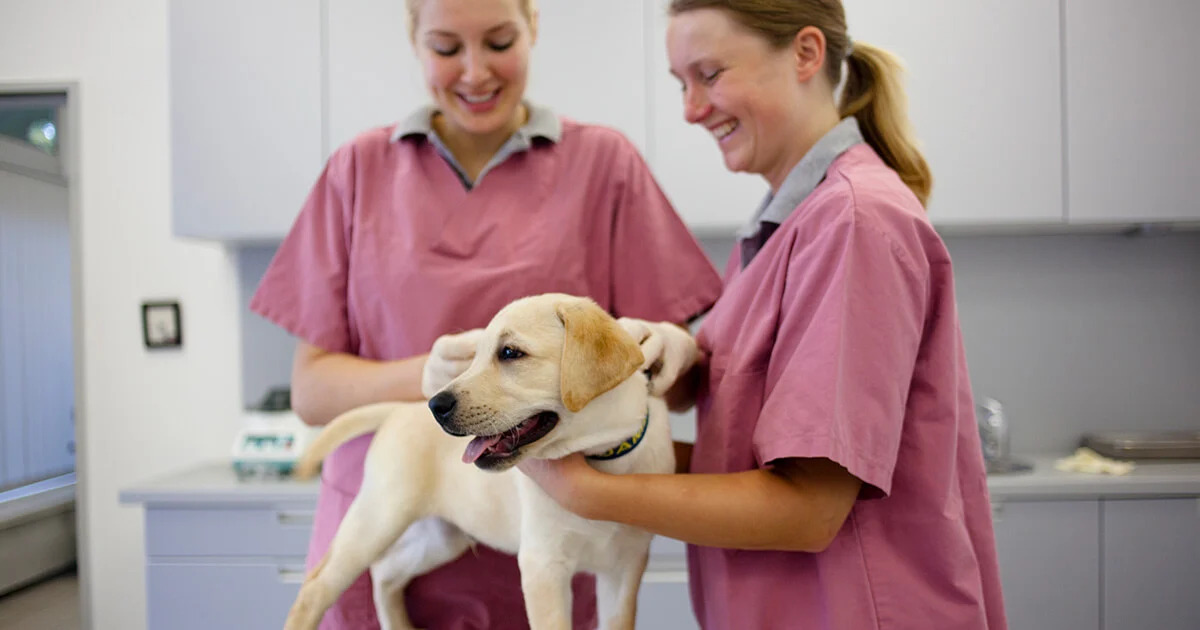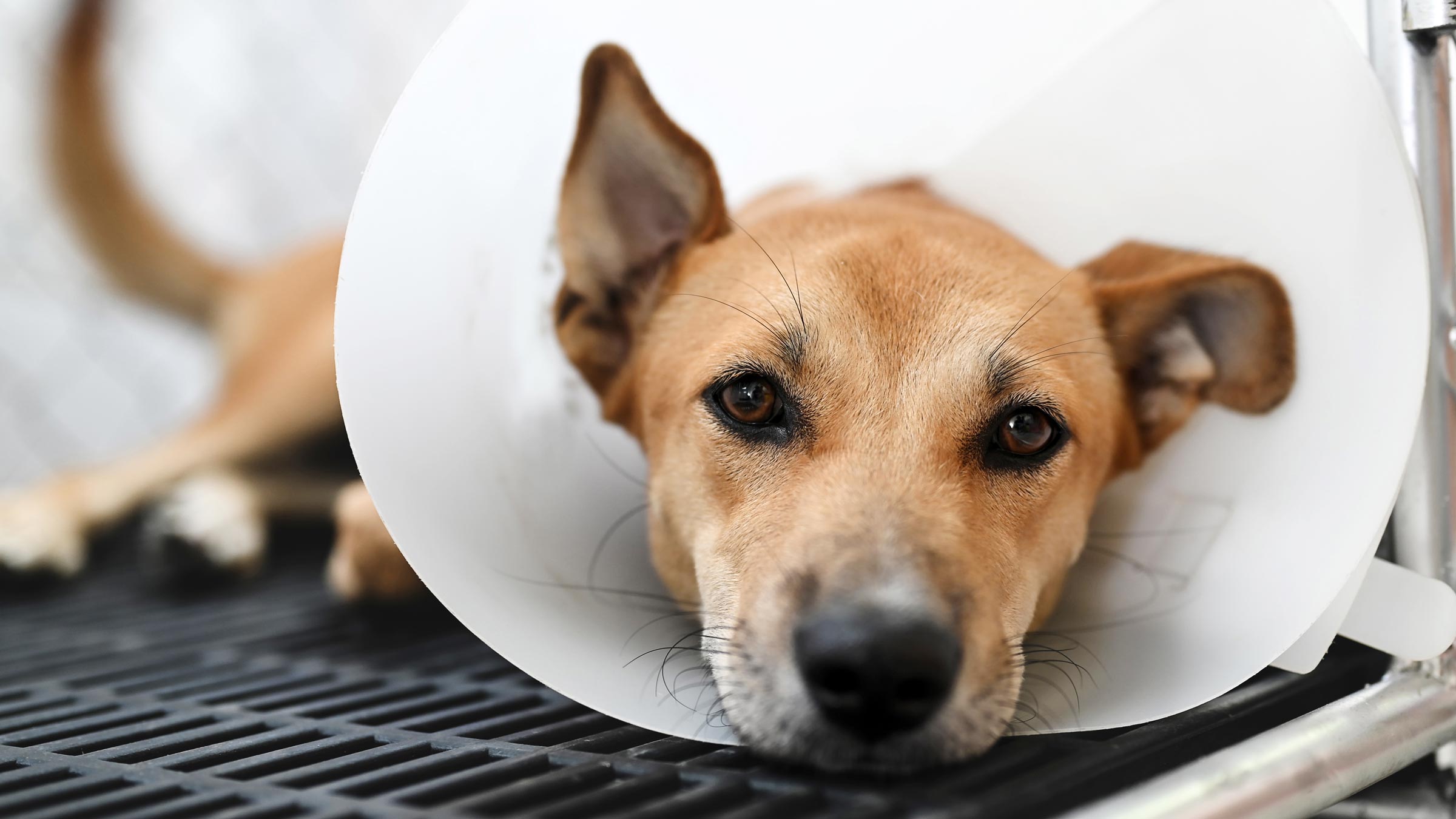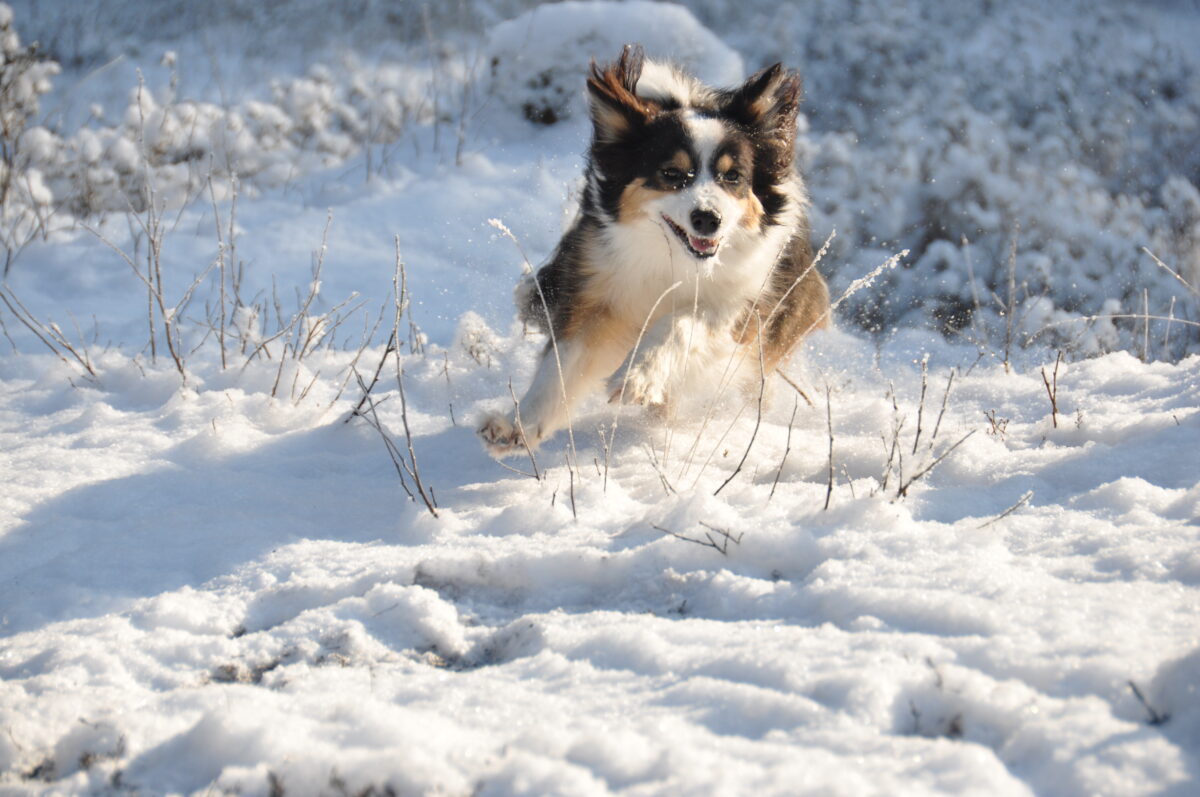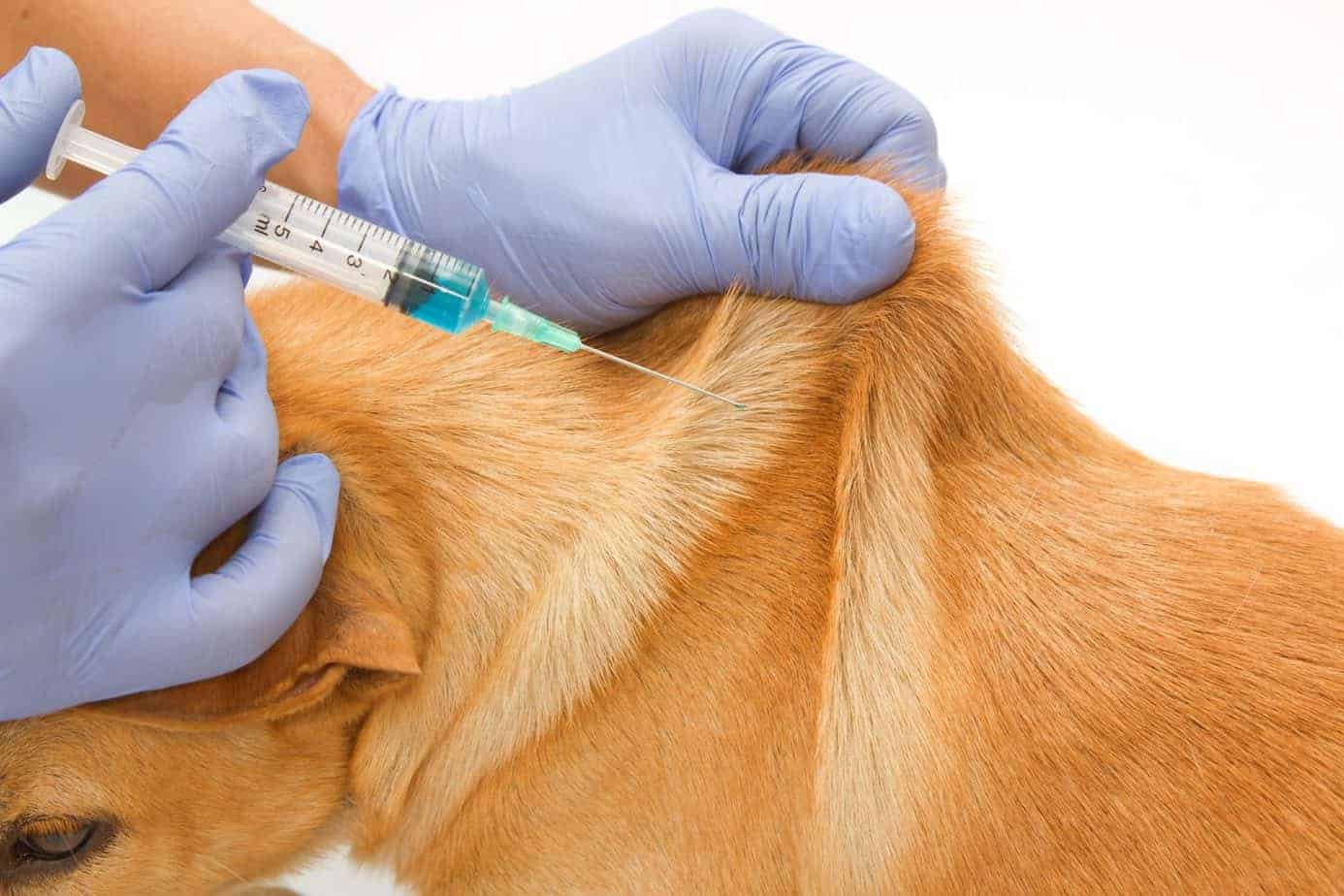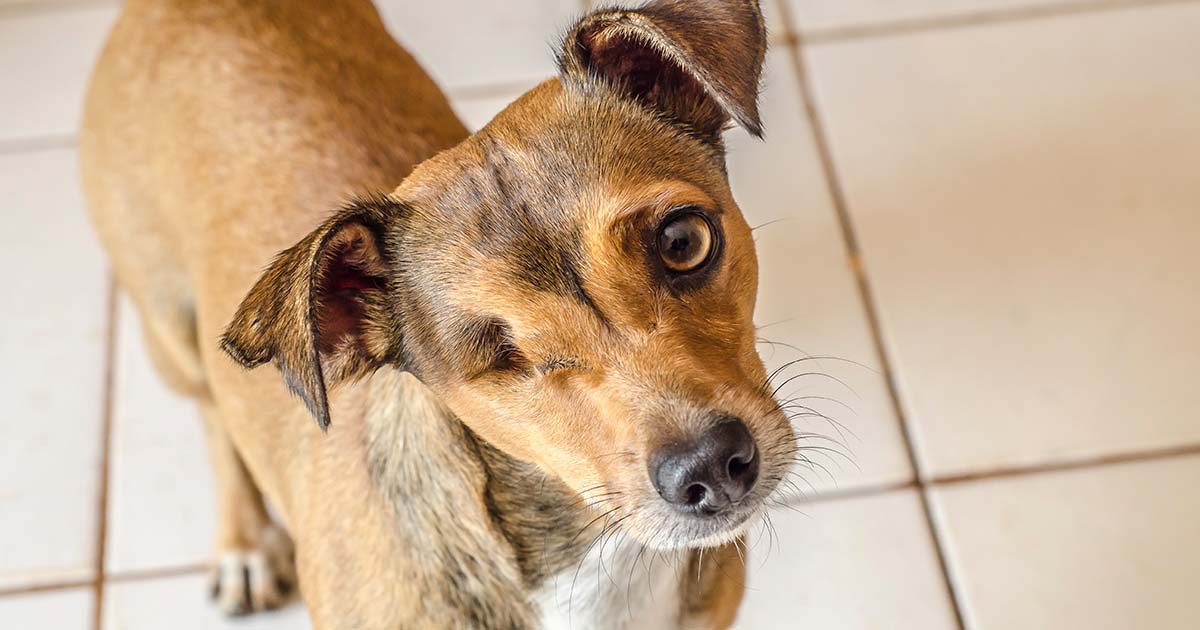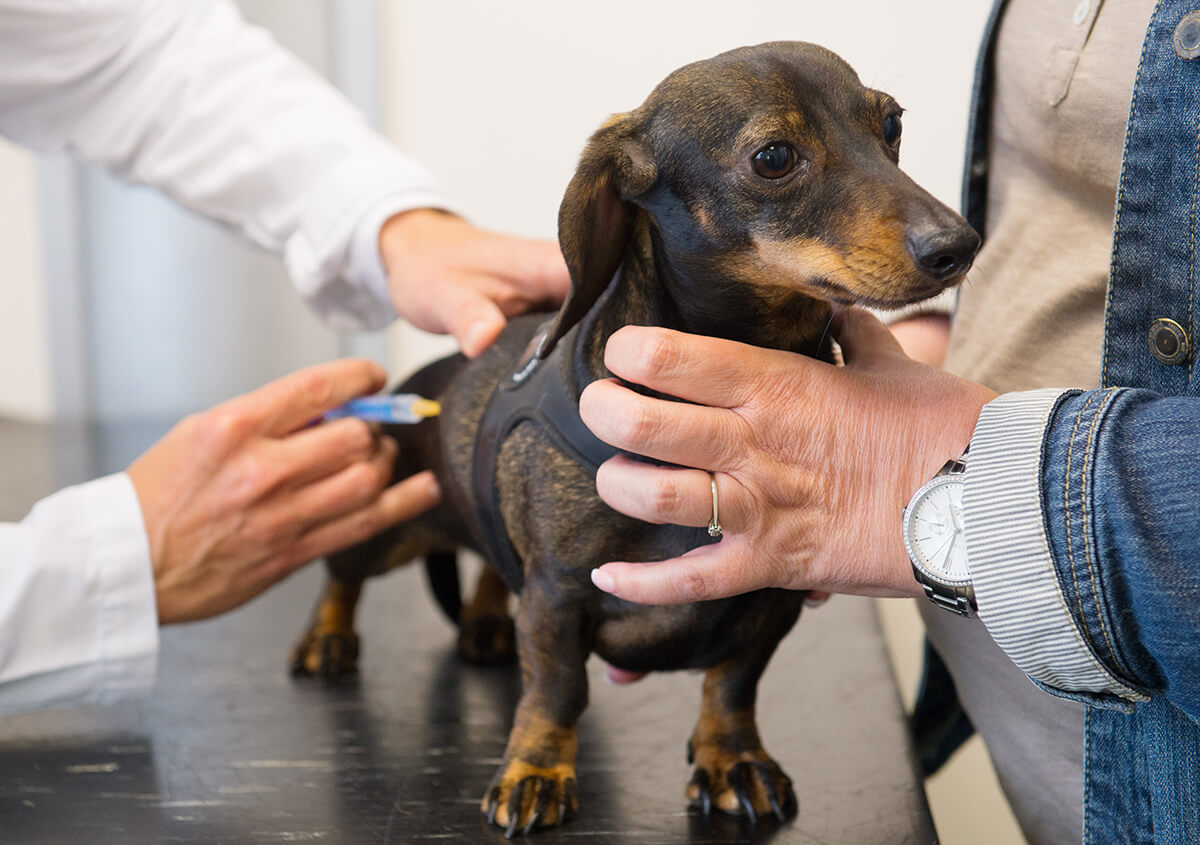Home>Health & Wellness>Common Health Issues>When Can A Puppy Meet Other Dogs After Vaccination
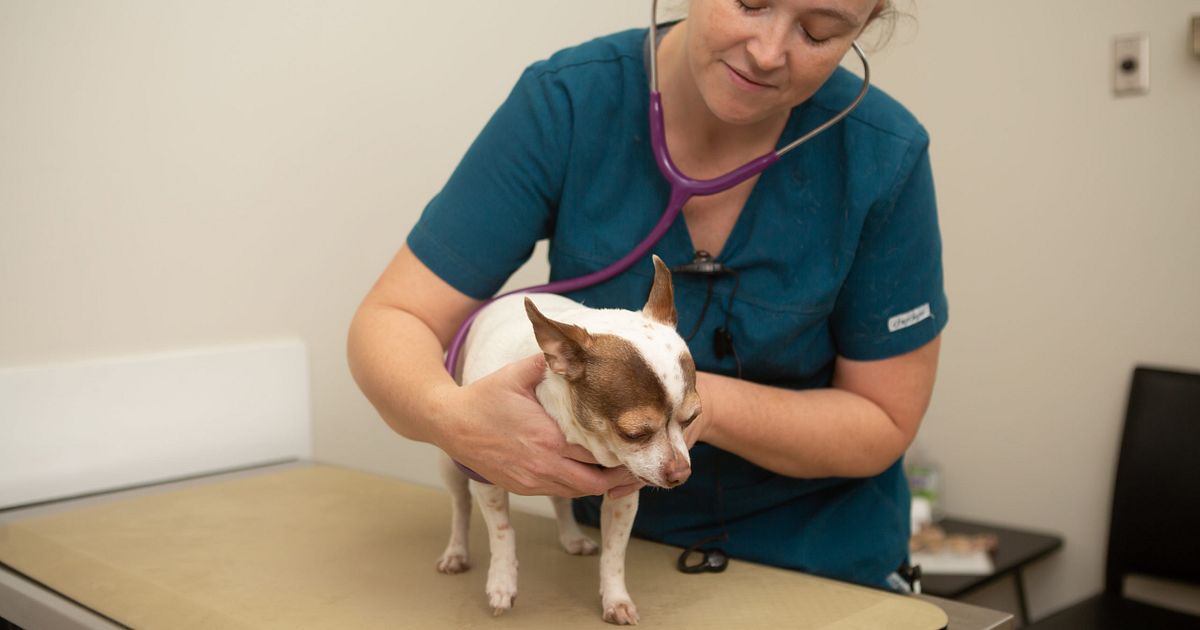

Common Health Issues
When Can A Puppy Meet Other Dogs After Vaccination
Published: January 31, 2024
Learn about common health issues for puppies and when it's safe for them to socialize with other dogs after vaccination. Protect your puppy's health and well-being.
(Many of the links in this article redirect to a specific reviewed product. Your purchase of these products through affiliate links helps to generate commission for Pawsomeoldies.com, at no extra cost. Learn more)
Table of Contents
Introduction
Welcoming a new puppy into your home is an exciting and heartwarming experience. The joy of having a furry companion to share your life with is unparalleled. However, amidst the excitement, it's crucial to prioritize your puppy's health and well-being. One of the most significant aspects of ensuring your puppy's health is understanding the importance of vaccinations and the appropriate timing for socialization with other dogs.
Vaccinations play a pivotal role in safeguarding your puppy against various infectious diseases. They work by stimulating the puppy's immune system to produce antibodies that provide protection against specific viruses and bacteria. This protection is vital, especially during the early stages of a puppy's life when their immune system is still developing and vulnerable to infections.
As a responsible pet owner, it's essential to familiarize yourself with the recommended vaccination schedule for puppies. This schedule typically includes a series of vaccinations administered at specific intervals to ensure comprehensive protection. By adhering to this schedule, you can significantly reduce the risk of your puppy contracting serious and potentially life-threatening illnesses.
While vaccinations are crucial for your puppy's health, so is socialization. Introducing your puppy to other dogs is an important part of their development, as it helps them learn vital social skills and build confidence. However, it's essential to strike a balance between the timing of vaccinations and the introduction to other dogs to ensure your puppy's safety.
In this article, we will delve into the significance of vaccinations for puppies, the recommended vaccination schedule, and the optimal timing for your puppy to safely interact with other dogs. Additionally, we will explore the precautions to take when introducing your puppy to other dogs, providing you with valuable insights to ensure a healthy and fulfilling experience for both you and your new furry friend.
Read more: When Can My Dog Go Out After Vaccinations
Importance of Vaccination for Puppies
Vaccinations are a cornerstone of preventive healthcare for puppies, playing a crucial role in protecting them from a myriad of infectious diseases. During the early stages of a puppy's life, their immune system is still developing, leaving them vulnerable to potentially life-threatening illnesses. Vaccinations work by stimulating the puppy's immune system to produce antibodies that provide immunity against specific viruses and bacteria.
One of the most common and dangerous diseases that vaccinations protect against is the parvovirus. This highly contagious virus can cause severe gastrointestinal symptoms, leading to dehydration, weakness, and in severe cases, death. Additionally, vaccinations safeguard puppies against distemper, a viral disease that affects the respiratory, gastrointestinal, and nervous systems, often resulting in neurological symptoms and even death. Another critical disease that vaccinations protect against is canine hepatitis, which can cause liver damage and other serious complications.
By adhering to the recommended vaccination schedule, pet owners can significantly reduce the risk of their puppies contracting these and other potentially fatal diseases. The vaccination schedule typically includes a series of shots administered at specific intervals to ensure comprehensive protection. This proactive approach not only safeguards the individual puppy but also contributes to the overall community immunity, reducing the spread of infectious diseases within the canine population.
Furthermore, vaccinations provide peace of mind for pet owners, allowing them to create a safe and healthy environment for their puppies to thrive. By ensuring that their puppies receive the necessary vaccinations, pet owners can mitigate the risk of costly medical treatments and the emotional distress associated with seeing their beloved companions suffer from preventable illnesses.
In essence, vaccinations are a fundamental aspect of responsible pet ownership, serving as a proactive measure to protect puppies from a range of potentially life-threatening diseases. By prioritizing vaccinations, pet owners can provide their puppies with a strong foundation for a healthy and fulfilling life, setting them on a path to thrive and enjoy countless joyful moments with their human companions.
Understanding the Vaccination Schedule
The vaccination schedule for puppies is a carefully designed plan that outlines the timing and types of vaccinations necessary to provide comprehensive protection against infectious diseases. This schedule is a critical component of preventive healthcare for puppies, aiming to bolster their immune system and shield them from potentially life-threatening illnesses.
The initial phase of the vaccination schedule typically begins when the puppy is around six to eight weeks old. At this stage, the primary vaccination, often referred to as the "puppy shot," is administered. This initial vaccination is crucial for kickstarting the puppy's immune response and laying the foundation for subsequent vaccinations. The primary vaccination is usually followed by a series of booster shots, which are essential for reinforcing the puppy's immunity and ensuring long-term protection against infectious diseases.
One of the core vaccinations included in the schedule is the combination vaccine, which provides protection against multiple diseases in a single injection. This approach not only streamlines the vaccination process but also minimizes the number of injections required, reducing potential stress for the puppy. The combination vaccine often safeguards against distemper, parvovirus, adenovirus, and sometimes parainfluenza, offering comprehensive protection against these prevalent and dangerous diseases.
As the puppy grows, the vaccination schedule outlines specific intervals for administering booster shots to maintain and enhance their immunity. These booster shots are essential for reinforcing the puppy's initial immune response and ensuring that their protection against infectious diseases remains robust. Adhering to the recommended intervals for booster shots is crucial for maximizing the effectiveness of the vaccinations and providing continuous immunity against prevalent canine diseases.
It's important to note that the vaccination schedule may vary slightly based on factors such as the puppy's breed, health status, and local disease prevalence. Therefore, consulting a veterinarian is paramount to ensure that the vaccination schedule is tailored to meet the specific needs of the individual puppy. Veterinarians play a pivotal role in guiding pet owners through the vaccination process, offering expert advice on the appropriate timing and types of vaccinations required to safeguard the puppy's health.
By understanding and adhering to the vaccination schedule, pet owners can proactively protect their puppies from a range of infectious diseases, providing them with a strong foundation for a healthy and vibrant life. The vaccination schedule serves as a roadmap for preventive healthcare, empowering pet owners to prioritize their puppy's well-being and set them on a path to thrive in a safe and nurturing environment.
When Can a Puppy Safely Meet Other Dogs?
Introducing a puppy to other dogs is an exciting milestone in their social development, fostering essential skills such as communication, play behavior, and canine etiquette. However, determining the optimal timing for this interaction is crucial to ensure the puppy's safety and well-being.
The timing for a puppy to safely meet other dogs is intricately linked to their vaccination schedule. While socialization is vital for a puppy's mental and emotional growth, their immune system must be sufficiently developed to provide protection against infectious diseases commonly transmitted among dogs. As a result, the general consensus among veterinarians is to wait until a puppy has completed their initial vaccination series, which typically occurs around 16 weeks of age.
By waiting until this stage, the puppy has received essential vaccinations, including those for parvovirus, distemper, and other contagious diseases. This provides a crucial window of protection, significantly reducing the risk of contracting serious illnesses during interactions with other dogs. Additionally, the waiting period allows the puppy's immune system to mature, enhancing their ability to fend off potential infections.
It's important to note that while the 16-week mark is a widely recommended milestone for safe socialization, individual circumstances may warrant variations in timing. Factors such as the prevalence of specific diseases in the local canine population and the puppy's overall health should be carefully considered. Consulting with a veterinarian to assess the risk factors and determine the most suitable timing for socialization is highly advisable.
Furthermore, the environment in which the puppy will be introduced to other dogs plays a pivotal role in ensuring their safety. Choosing controlled and familiar settings, such as reputable puppy socialization classes or interactions with well-vaccinated and temperamentally sound adult dogs, can minimize potential risks. These environments offer opportunities for positive social experiences while mitigating the likelihood of exposure to infectious agents.
In essence, the optimal timing for a puppy to safely meet other dogs aligns with the completion of their initial vaccination series, typically around 16 weeks of age. This milestone marks a crucial balance between the puppy's immune readiness and the benefits of early socialization. By prioritizing the puppy's vaccination schedule and consulting with a veterinarian, pet owners can facilitate safe and enriching interactions, laying the groundwork for a lifetime of positive social experiences for their furry companions.
Precautions to Take When Introducing a Puppy to Other Dogs
Introducing a puppy to other dogs is a significant step in their socialization journey, fostering crucial skills and behaviors that contribute to their overall well-being. However, it's essential to approach this process with careful consideration and take specific precautions to ensure the safety and positive experience of the puppy. By implementing the following measures, pet owners can facilitate harmonious introductions and lay the foundation for healthy social interactions:
1. Controlled Environments:
When introducing a puppy to other dogs, it's advisable to choose controlled and familiar environments that minimize potential risks. Reputable puppy socialization classes, well-maintained dog parks, or interactions with known, vaccinated adult dogs can provide safe settings for initial introductions. These environments offer opportunities for positive social experiences while reducing the likelihood of exposure to infectious agents.
2. Vaccination Verification:
Before arranging interactions with other dogs, it's crucial to verify the vaccination status of the canine companions. Ensuring that the other dogs are up-to-date on their vaccinations, including those for distemper, parvovirus, and other contagious diseases, can significantly mitigate the risk of disease transmission. This precaution is particularly important when introducing a puppy to unfamiliar dogs in public spaces.
3. Observation and Supervision:
During the initial interactions between a puppy and other dogs, close observation and supervision are paramount. Monitoring the body language and behavior of all dogs involved can provide valuable insights into their comfort levels and interactions. Additionally, maintaining a safe distance and intervening if necessary can prevent potential conflicts and ensure a positive experience for the puppy.
4. Gradual Introductions:
Introducing a puppy to other dogs should be approached gradually, allowing the puppy to acclimate to new social dynamics at their own pace. Initial interactions can involve brief, controlled encounters with well-socialized and gentle adult dogs, gradually progressing to more extended play sessions as the puppy becomes more confident and comfortable. This gradual approach fosters positive experiences and minimizes stress for the puppy.
Read more: Getting A Puppy When You Have A Senior Dog
5. Positive Reinforcement:
Using positive reinforcement techniques during interactions with other dogs can help shape the puppy's social behavior in a positive direction. Rewarding desirable behaviors, such as friendly greetings and appropriate play, encourages the puppy to associate social interactions with positive experiences. This approach contributes to the development of healthy social skills and reinforces the puppy's confidence in engaging with other dogs.
6. Health Monitoring:
Following interactions with other dogs, it's essential to monitor the puppy's health for any signs of illness or unusual symptoms. Early detection of potential health issues allows for prompt veterinary attention, ensuring the puppy's well-being and addressing any concerns related to exposure to infectious diseases.
By implementing these precautions, pet owners can create a safe and supportive environment for introducing their puppies to other dogs. These measures prioritize the well-being and social development of the puppy, fostering positive interactions and laying the groundwork for enduring friendships with canine companions.
Conclusion
In conclusion, the journey of welcoming a new puppy into your life encompasses a multitude of enriching experiences, from heartwarming companionship to the joy of witnessing their growth and development. Central to this journey is the pivotal role of vaccinations in safeguarding your puppy's health and well-being. By adhering to the recommended vaccination schedule, pet owners can proactively protect their puppies from a range of infectious diseases, providing them with a strong foundation for a healthy and vibrant life.
Understanding the significance of vaccinations for puppies and the meticulous planning behind the vaccination schedule empowers pet owners to prioritize their puppy's preventive healthcare. The initial vaccination series, often commencing at six to eight weeks of age, lays the groundwork for comprehensive protection against prevalent canine diseases. Subsequent booster shots further bolster the puppy's immunity, ensuring long-term resilience against potential health threats.
The optimal timing for a puppy to safely meet other dogs aligns with the completion of their initial vaccination series, typically around 16 weeks of age. This milestone marks a crucial balance between the puppy's immune readiness and the benefits of early socialization. By prioritizing the puppy's vaccination schedule and consulting with a veterinarian, pet owners can facilitate safe and enriching interactions, laying the groundwork for a lifetime of positive social experiences for their furry companions.
Furthermore, the precautions to take when introducing a puppy to other dogs serve as essential guidelines for creating harmonious and safe social interactions. From choosing controlled environments to verifying the vaccination status of canine companions, these measures prioritize the well-being and social development of the puppy, fostering positive experiences and enduring friendships with canine companions.
In essence, the journey of responsible pet ownership encompasses a commitment to preventive healthcare, thoughtful socialization, and the nurturing of a safe and supportive environment for your puppy. By embracing these principles, pet owners can embark on a fulfilling and rewarding journey with their puppies, characterized by health, happiness, and enduring companionship.

